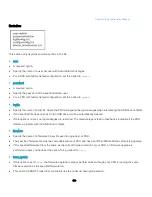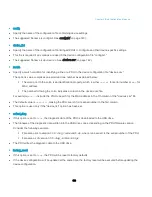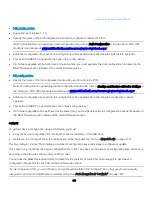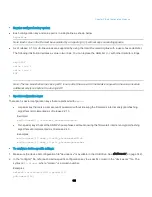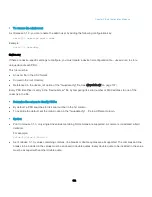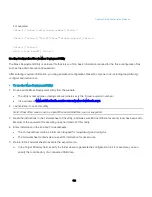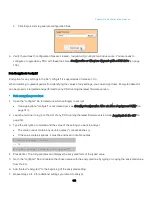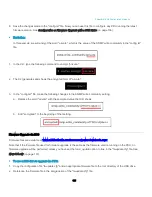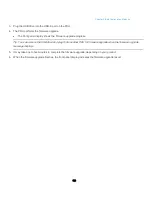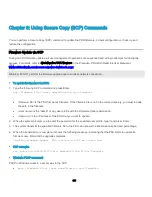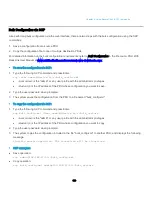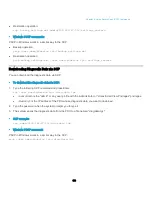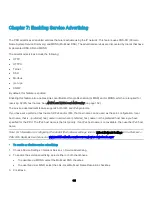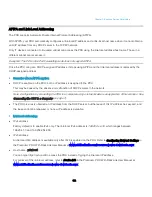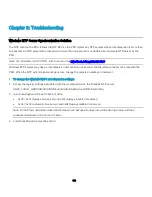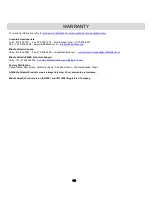
Chapter 7: Enabling Service Advertising
152
APIPA and Link-Local Addressing
The PDU supports Automatic Private Internet Protocol Addressing (APIPA).
With APIPA, your PDU automatically configures a link-local IP address and a link-local host name when it cannot obtain a
valid IP address from any DHCP server in the TCP/IP network.
Only IT devices connected to
the same subnet
can access the PDU using the link-local address/host name. Those in a
different subnet cannot access it.
Exception: The PDU in the Port Forwarding mode does not support APIPA.
Once the PDU can get a DHCP-assigned IP address, it stops using APIPA and the link-local address is replaced by the
DHCP-assigned address.
Scenarios where APIPA applies:
•
DHCP is enabled on the PDU, but no IP address is assigned to the PDU.
This may be caused by the absence or malfunction of DHCP servers in the network.
Note: Configuration by connecting the PDU to a computer using a network cable is an application of this scenario. See
Connecting the PDU to a Computer (on page 7).
•
The PDU previously obtained an IP address from the DHCP server, but the lease of this IP address has expired, and
the lease cannot be renewed, or no new IP address is available.
Link-local addressing:
•
IPv4 address:
Factory default is to enable IPv4 only. The link-local IPv4 address is
169.254.x.x/16
, which ranges between
169.254.1.0 and 169.254.254.255.
•
IPv6 address:
A link-local IPv6 address is available only after IPv6 is enabled on the PDU. Refer to
Configuring Network Settings
in
the PDU With RackLink User Manual at
www.middleatlantic.com/resources/power-downloads.aspx
•
Host name - pdu.local:
You can type
https://pdu.local
to access the PDU instead of typing the link-local IP address.
For retrieval of the link-local address, refer to
Device Info
in the PDU With RackLink User Manual at

